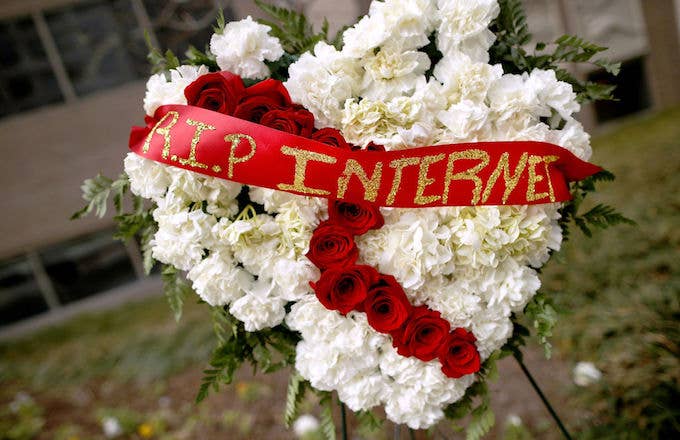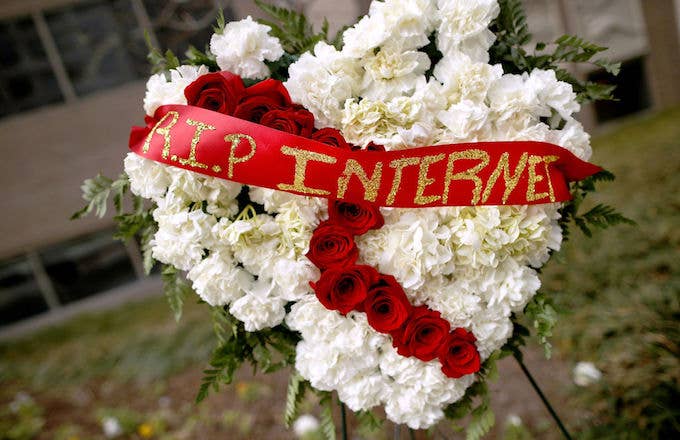
Just because the FCC voted to repeal the net neutrality rules back in December doesn’t mean we all have to take it lying down, and today we all got a little bit closer to keeping the rules that keep our Internet free and open. On Tuesday, a group of 21 U.S. state attorneys have filed a lawsuit to challenge the FCC’s decision on net neutrality. But there’s more good news: Senate Democrats have announced they are only one vote away from having enough people to repeal the FCC’s ruling.
Reuters reports that the state attorneys, which include those of California, New York, Virginia, and the District of Columbia, filed a petition with a federal appeals court in Washington to challenge the ruling. They called it “arbitrary, capricious, and an abuse of discretion.” More importantly, though, they claim the act violates federal laws and regulations.
When it comes to the Senate Democrats, they allege that they have 50 out of 100 members of the Senate on board for voting to overturn the repeal of net neutrality. This currently means they are only one vote short of a majority. But it’s not so simple: a repeal would require a vote in the House of Representatives, too, and Republicans hold a larger majority there than in the Senate. Plus, anything they do could be vetoed by President Donald Trump. Trump supports the FCC’s decision to repeal net neutrality.
Every Senate Democrat has now signed on to my CRA to restore #NetNeutrality. We’re all in for a free and open Internet.
With just one more Republican vote, we can pass the CRA in the Senate. https://t.co/J2VJXcKtXS
The repeal of the net neutrality rules basically means that Internet providers like AT&T, Comcast, and Verizon have control over what content consumers have access to online. Internet providers have promised they will not change how consumers access their online content, but it’s hard to trust these huge corporations since they are now legally allowed to do so.
House Energy and Commerce Committee Chairman Greg Walden, who is, unsurprisingly, a Republican, is planning a hearing on paid prioritization, which is basically the concept that those who pay more would get faster Internet. “Where do you want to sit on the airplane? Where do you want to sit on Amtrak?” he said, arguing that paid prioritization is part of the American way of life.
The open internet rule was created to protect a level playing field and to make sure no one can throttle access or block content. Read more about our efforts to protect the open internet https://t.co/JPeiDntCeb
In addition to the actions of the state attorneys and the Senate Democrats, the Internet Association’s—the leading lobbyist for the Internet’s biggest companies, including Amazon, Google, Facebook, PayPal, and more—has pledged to fight to protect net neutrality.

